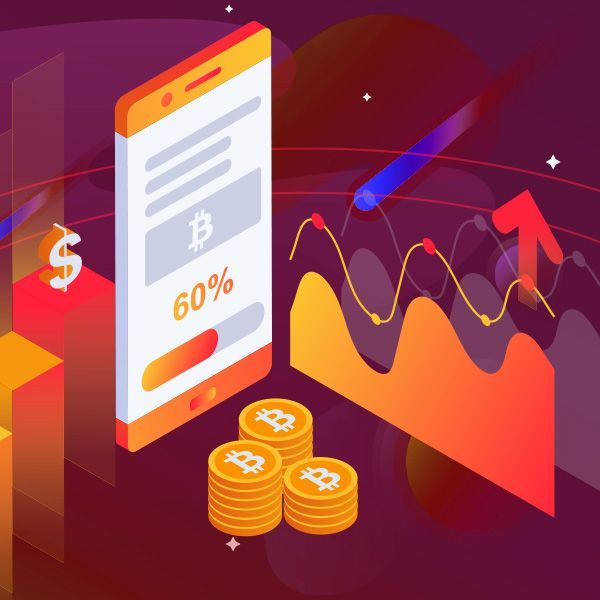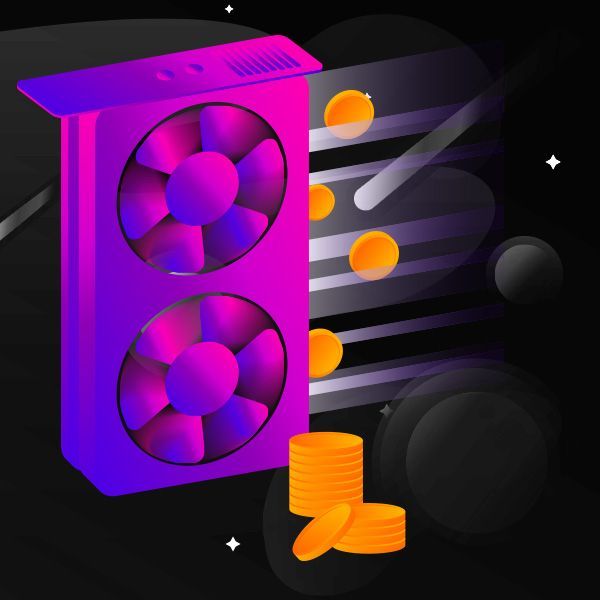The Different Types of Crypto Fees Explained
Hey, in this section, we’re going to talk about crypto fees, and everything associated with this topic!
Nowadays, fees are something that everyone is very used to - whether it be shopping online or interacting with different businesses, in any way, in many cases, you will need to pay some sort of a service or product fee. Cryptocurrency trading isn’t an exception, either!
Crypto gas (or, network) fees can be confusing, and that’s not to mention things like trading fees, or even withdrawal & deposit fees, too. At the same time, all of this information is very important, when you’re getting into crypto - it can really be the difference between you making a potential profit with your trades, or losing a lot of money on fees!
In this section, we’re talking about crypto fees. To be a bit more specific, we’ll talk about the different types of fees that you might come across, cover what are gas fees in crypto, and also look for cryptos with no transaction fee. Is that possible? Find the answer below!
Now, let’s get to it!

Video Explainer
Video Explainer: The Different Types of Crypto Fees Explained
Reading is not your thing? Watch the "The Different Types of Crypto Fees Explained" video explainer
Crypto Fees Explained: How Not to Overpay? (Animated)


The Different Types of Crypto Fees
Now, then - to start things off, and before we can get into the specifics of crypto fees, we should first establish what sorts of fees you might come across, when you’re buying, selling, or trading crypto.
Starting out from the top, you’ll find that the most interesting type of fees are the crypto gas fees, also known as blockchain fees. “Gas” is a strange term, I admit, but essentially, it refers to the fee that you need to pay to the network, in order for your transaction to be submitted and, eventually, approved. It’s something that I’ll elaborate on further.
You could look at it as actual gas that you put into your car, as well! Say, you want to travel to your friend’s house, but he lives a couple of hours away. In order for you to be able to drive to your friend, your car will need gas (or petrol, or diesel, or these days, electricity) - without it, the car won’t start, and you won’t be able to make the journey!
The principle is exactly the same with cryptocurrency transactions, too. If you want your transaction to be approved, you’ll need network miners or node validators to do so. They won’t do it for free, though, and will charge you a fee. Admittedly, the just-mentioned concepts are rather complex - if you’re not familiar with them, check out other sections on the Crypto 101 Handbook to find information about these and similar topics!

The next popular type of crypto fees is called “transaction fees”, or “trading fees”. This is the fee that you will pay to, say, a cryptocurrency exchange, in order for it to execute your trade, or to perform a cryptocurrency purchase with USD, EUR, or any other fiat currency.
Notably, transaction or trading fees are only paid when you actually make a cryptocurrency purchase or trade, on a specific exchange platform that specializes in this field. So, for example, if you only want to send some cryptocurrency to your friend, from your wallet to theirs, in most cases, the only fees that you’ll need to pay are the earlier-discussed gas, or blockchain, fees.
While you will find very different numbers being thrown around, depending on where you look, the general industry-average trading fee is considered to be 0,25% for both crypto buyers and sellers (or, rather - market makers and takers). Although, keep in mind that market takers (the ones who interact with an order created by the market makers) usually have to deal with higher fees!
Now, we got really technical there for a second. This is some advanced-level economics, mixed with cryptocurrency terminology - it’s not that simple to wrap your head around, I admit! Again, though - if certain concepts that we’ve discussed up to this point sound foreign to you, make sure to check out other sections in this Crypto 101 Handbook!
Another form of fees that you also need to know about are loan fees. Here, the concept is pretty simple - if you’re a lender, you will likely charge the borrower a fee, for them borrowing your cryptocurrency assets. Unlike with trading, however, loan fees don’t really have an intricate system that would determine the fee that you’d pay, before you even borrow the assets.
In fact, loan fees can vary, quite a bit. And that makes sense, too! If you were to lend your friend your car for the weekend, you might ask them to fill up the tank, once they’re done - however, if you would be asked to lend that same car, to a stranger, and for, say, an entire month, a filled tank probably wouldn’t suffice - you’d likely ask for some form of compensation, too!
In any case, lending (or, rather - borrowing) fees are unavoidable, if you plan to borrow crypto, for some reason. Make sure to look into the numbers on different lending platforms, however, and try to find the best deals!

The last form of fees that we need to talk about is the deposit and withdrawal fees. As the terms might suggest, these fees are paid when you deposit or withdraw cryptocurrencies to and from an exchange. That’s a notable point to keep in mind, too - deposit and withdrawal fees only exist with cryptocurrency exchanges! Well, in most cases, at least.
Once again, you can view this from the perspective of the example I gave earlier. Let’s say that you’ve filled up your car’s gas tank, and are ready to travel to your friend’s house. As you go there, you need to drive through a few different roads - while most of them are free to travel through, a few have tools that need to be paid, in order for you to be able to drive on them, and not get a ticket.
This example illustrates the point I’ve made earlier - while some services will allow you to withdraw and deposit cryptocurrencies free of charge, others will have fees that you need to pay.
Solving the Mystery of Gas Fees
Now that you know about the main types of fees that you’ll encounter while dealing with cryptocurrencies, I’d like to go back to the concept that usually causes beginners the most amount of confusion - crypto gas fees.
Specifically, how do you know what the gas - or network - fees are going to be when you decide to send cryptocurrency to someone else? Is there a specific number, or does it depend on some factors?
Well, let me tell you - it’s all much simpler than it looks, when you hear about it for the first time!
For starters, no - there is no single number that would be associated with gas fees. Each network has its own fee model, and on top of that, there’s a myriad of variables that can impact those crypto gas fees, even more.

The simplest example can be found by taking a look at Ethereum. It’s the second-most-popular cryptocurrency in the world, so, as you can expect, there are a lot of transactions happening on the network, every single second. If you’ve ever bought ETH, or have sent it to your friend, you’ve participated in a transaction like that, too!
Sometimes, there are so many transactions happening on the Ethereum network, that a queue starts to form. One way to make sure that your transaction isn’t stuck in that queue for too long is to pay a higher gas fee - then, transaction validators will have a bigger incentive to confirm your transaction first, since they will receive a bigger reward for doing so!

Cryptocurrency miners, transaction validators, and nodes are all a different topic that has to do with some advanced and technical transaction confirmation details - in other words, it requires a much deeper explanation in a separate section. Going back to crypto gas fees, the point I’m trying to make is simple - gas fees are not stable, and will depend on various factors.
Crypto Without Transaction Fees
Moving on, the final question that I’d like to address has to do with cryptos with no transaction fees. Specifically, do such cryptocurrencies even exist, in the first place?
Well… Kind of.

As far as I could find, cryptocurrencies with ZERO transaction fees don’t really exist, with some exceptions (such as the NANO coin). However, there are many cryptos that offer the lowest transaction fees - so, you could say that there are PRACTICALLY no fees.
A great example would be IOTA. This cryptocurrency has very low transaction fees - you could go as far as to say that they’re negligible. Another very popular coin is Cardano - while the fees on this network are bigger, by comparison, they are still nearly non-existent.
If you yourself are looking to trade crypto without fees, it’s definitely a topic that requires a lot of research and know-how, as far as the market is concerned. There are new cryptocurrency projects popping up every single day - some of them do, for a fact, emphasize their “small transaction fee” benefits!
Also, if you’re looking for which crypto has the lowest transaction fees in order to save money on the fees that you’d pay while trading or sending it, remember that there are other factors involved in the process, too! For example, you would then also need to look for a cryptocurrency exchange platform that has small trading fees, as well as try to time your trades when the network isn’t majorly congested!
Wrapping Up
So, then - by now, you should have developed a pretty good understanding of cryptocurrency fees! This is true both when it comes to the types of fees that you may encounter, as well as what you can do to minimize and lower the amount of fees that you pay, for your transactions.
Remember - if you want to pay as small of a transaction fee as possible, you need to find cryptocurrencies with nearly-zero fees, and trade (or buy, sell, transfer) crypto when there aren’t a lot of people doing the same thing, at the same time.















